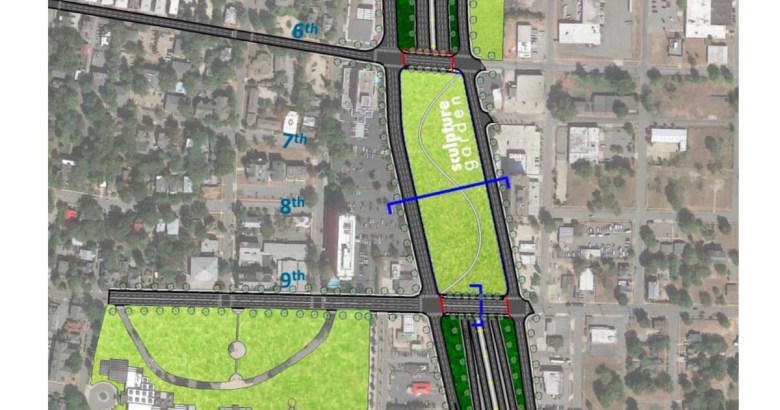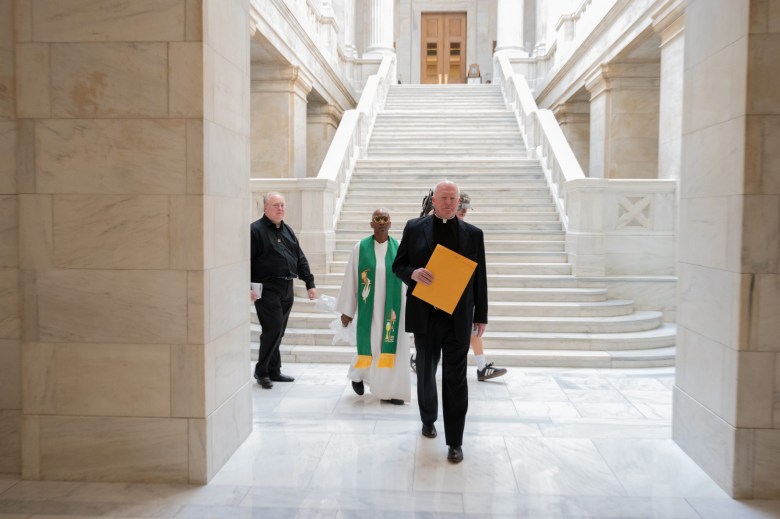Even though funding to build the park is questionable, the Little Rock Board of Directors decided Tuesday night to proceed with a study for a possible deck park over a sizable portion of Interstate 30 close to downtown.
A $2 million federal planning grant will cover the majority of the study’s costs, but the city is also responsible for an additional $500,000. A resolution was accepted by the city board to contract the Garver engineering firm to conduct the research, using $500,000 from the city’s street fund. Both Ward 3 Director Kathy Webb, who represents Hillcrest and the Heights, and At-large Director Joan Adcock voted against the measure.
Future funding for the project’s construction was anything from assured, according to Adcock and Webb. Numerous residents had gotten in touch with Webb to voice their concerns about moving forward with the project while there was no apparent way to finance its development, according to Webb. Adock and Webb added that they were worried about spending $500,000 on park planning when the city’s existing parks are in poor condition and there are other problems with roadway upkeep that need to be fixed.
Adcock and Webb unsuccessfully attempted to have the matter voted on independently from the remainder of the agenda prior to the vote.
Antwan Phillips, the at-large director, voted in favor of the resolution despite voicing some reservations about the proposal. Given that voters in Little Rock rejected a sales tax in November that would have raised around $300 million for park improvements over the following ten years, Phillips stated that he didn’t think the community would be willing to pay for the deck park. However, he claimed that despite the uncertainty surrounding future financing, his wife had urged him to remain positive and support the project.
Dean Kumpuris, the at-large director, endorsed the concept. Kumpuris told the Arkansas Times following the vote Tuesday night that the city has agreed to use the $500,000 for the planning process, but that opponents are viewing it as money that may be used for other purposes. According to him, the funds were set aside in the city’s 2025 budget for that reason.
We will be done if you don’t take the initiative and make a daring move to improve this city. Kumpuris said, “And that’s it.”
The two sides of downtown Little Rock, which have been divided by I-30 for many years, are to be connected by a park, according to Kumpuris and other city officials. The park would be a deck that runs along I-30 Frontage Road and crosses a section of the freeway between the 6th Street and 9th Street overpasses.
Since 2023, when the Coalition of Little Rock Neighborhoods joined forces with the city and the state to secure a $2 million federal planning grant through a program established under President Biden’s bipartisan infrastructure package, there have been rumors of a deck park in Little Rock. Little Rock’s Downtown Master Plan, which includes dozens of ideas for reviving the city core in the upcoming years, includes the park.
The city decided to provide half a million dollars from the about $26 million yearly street fund to cover the remaining costs, even though the majority of the planning and design process was funded by federal funds. However, if the city advances that far, there are numerous concerns about where the money for the park itself would come from.
Additionally, the endeavor can be highly costly.The construction of Klyde Warren, a similar deck park in Dallas, required cooperation from multiple corporate and public financing sources and cost $112 million. According to KARK-TV, Mayor Frank Scott Jr. has stated that the deck park could require hundreds of millions of dollars to construct.
Although the $1 billion allotted by the bipartisan infrastructure law has already been used, the program that provided funding for the deck park’s initial development was for the years 2022–2026. As the Biden administration was coming to an end, the U.S. Department of Transportation distributed $544 million in planning and construction awards to cities nationwide on January 10. However, the projected deck park in Little Rock was not one of them.
The Neighborhood Access and Equity program, another possible source of money, was just slashed by billions of dollars by the One Big, Beautiful Bill, which was recently signed into law by President Trump and passed by legislative Republicans.
In other events, the Little Rock city board authorized funds for 29 new electric vehicles for the city from Metroplan, a planning agency in Central Arkansas.
It’s dragon-slaying time!
The Arkansas Times, which relentlessly defends the fundamental rights and liberties in our community, stands as a light of truth in an era when critical voices are being silenced more and more. Our commitment to provide uncompromising journalism has never been more important, especially with Arkansas in the center of a broad culture war that is impacting our libraries, schools, and public conversation. We can’t accomplish our goals of defeating dragons and holding those in positions of authority responsible alone. You can guarantee that independent journalism in Arkansas not only endures but flourishes by making a contribution today. We can join the fight and make a difference together.







